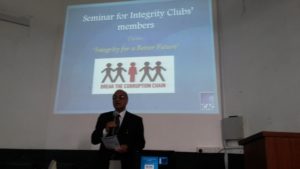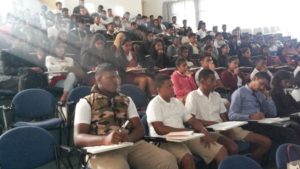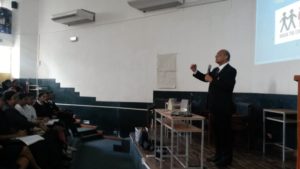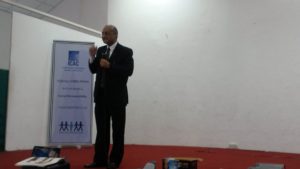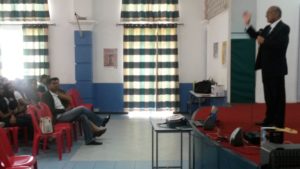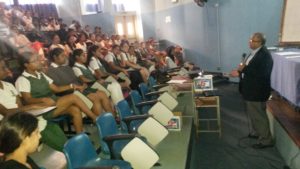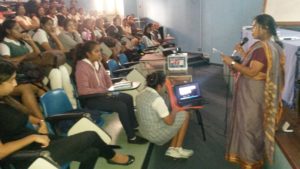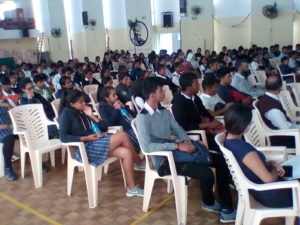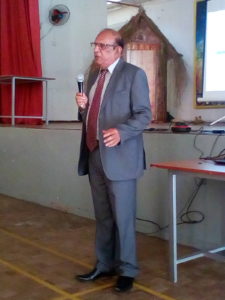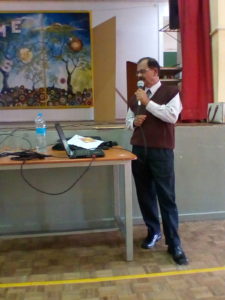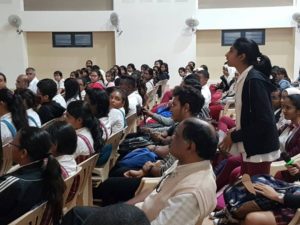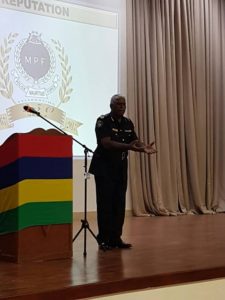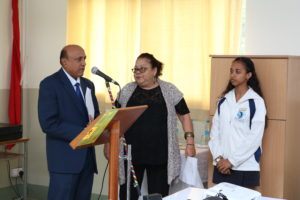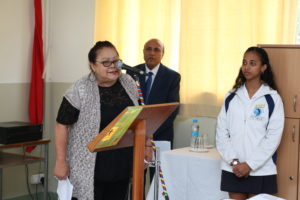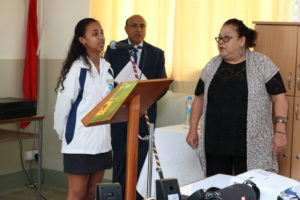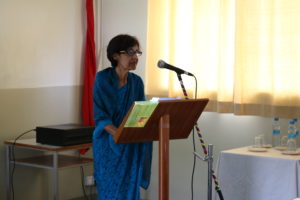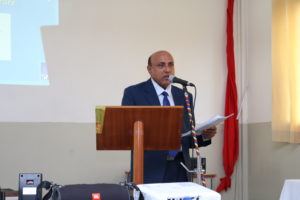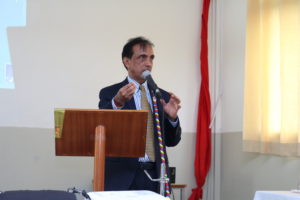Regional Seminars for Integrity Clubs: Empowerment of some 800 members in secondary schools
Eight regional seminars targeting members of Integrity Clubs (ICs) in secondary schools were conducted, from May to August 2017, by the Independent Commission Against Corruption (ICAC) with the support of the Ministry of Education and Human Resources, Tertiary Education and Scientific Research. The participants were brought together to reflect on the importance of a culture of integrity and discuss ways and means to take the lead in initiating anti-corruption activities. The seminars, on the theme ‘Integrity for a better future’, were held in the following regions: Flacq, Port-Louis, Goodlands/Rivière du Rempart, Rose-Hill/Moka, Curepipe/Vacoas, Rose-Belle/Souillac and Bambous/Quatre-Bornes.
Various guest speakers were invited to share their vision of ‘integrity’ based on their professional experience to inspire IC members to adopt anti-corruption values and principles. They comprised Mr. M. Nobin, Commissioner of Police, Honourable Mrs. P. Balgobin, retired Judge, Supreme Court of Mauritius, Mr. D. Ruhee, former Senior Chief Executive of the Ministry of Education and Human Resources, Professor V. P. Torul from the Department of Law and Criminology of Aberystwyth University (Mauritius Branch Campus), Mr. D. Bhunjun, Chairperson of Professional Architect Council and Mr. B. Taleb, former Rector as well as Manager of Islamic Cultural Colleges. IC facilitators (educators designated by the Rectors to guide IC members) were also called upon to share their experiences and achievements of clubs and the impact of such activities.
Based on feedback gathered, the seminars were successful in terms of the level of participation (an average of 100 students in each) and interactions, as they provided an opportunity for participants to better grasp the importance of integrity as well as voice out their views and concerns regarding corruption. The seminars also provided for deeper thoughts on integrity issues from the audience, prompted participants to reflect on ways and means to bring ICs to a higher gear and boosted up members’ engagement in nurturing a culture of integrity. This initiative has also triggered many secondary schools in the regions concerned, without Integrity Clubs, to initiate discussions on the setting up of such structures.
Students were also encouraged to shift their engagement in the fight against corruption to a higher gear by considering moving out of schools boundaries, organising inter-integrity clubs activities to promote sharing and interactions. A number of pertinent issues were raised by the participants, stimulating interactions throughout the seminars. These pertained to, amongst others, cases of corruption and money laundering, modus operandi of the ICAC, corruption offences under the Prevention of Corruption Act 2002, political corruption, Integrity Testing for hiring of staff and the line of demarcation between a gift, a favour and a corrupt act.
Integrity Clubs represent an ideal platform for youth empowerment and character building in nurturing an integrity culture. It is hoped that the 113 ICs which are presently in operation in our secondary schools, including Rodrigues, will contribute in fostering a corrupt-free society. To enhance effectiveness in our endeavour, we call upon all stakeholders engaged in this venture (such as Rectors, IC facilitators and IC members) to join forces for more coordinated and impactful actions.
